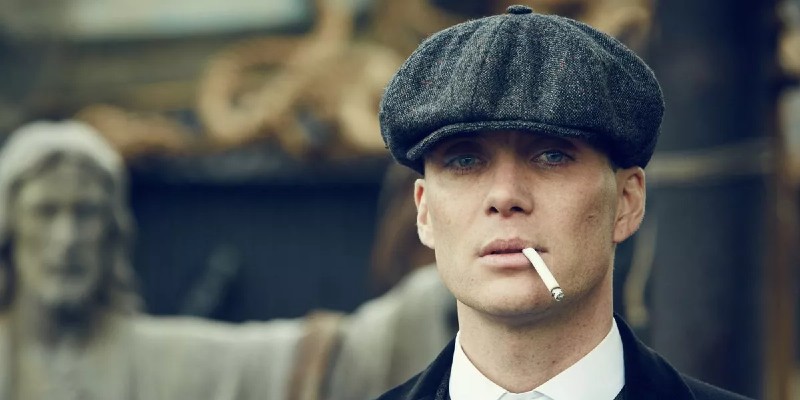With the benefit of hindsight, the 1920s seem like an odd reprieve from the rest of that century. After the most devastating war the world had ever known, and before a global economic cataclysm and a second world war on top of it, the U.S. and western Europe saw a brief golden age of glamorous parties, economic prosperity and flourishing arts and culture. Soundtracking it all was what has been called the first American art form, jazz, a preview of the century’s American cultural hegemony.
The truth, of course, was not quite as simple. Even as the music they invented came to define the decade, Black Americans had to contend with the rebirth of the Ku Klux Klan. And even before the Wall Street crash that closed out the decade, the economic have-nots remained even if they were largely glossed over. The fascist ideology that spread through Europe and threatened the globe didn’t come from nowhere, and was waiting in the wings for much of what we consider the good times, as two crime dramas set in 1920s Europe make clear.
The ashes of World War 1 are everywhere in BBC’s “Peaky Blinders.” Tommy Shelby (Cillian Murphy), who leads the eponymous Birmingham gang, suffers from severe, untreated PTSD, as does his older brother Arthur and practically every man they know. In the show’s third season, a Sicilian-American mafioso (Adrien Brody) explains to a henchman that “over here, everything is about the war.” Apart from unionist firebrand Ada (Sophia Rundle), the Shelbys are initially resolutely apolitical, as Tommy deftly manipulates everyone from the Communist Party to White Russian exiles to Irish Republicans for his own ends.
All that changes, however, with the introduction in the show’s fifth season of Oswald Mosley (Sam Claflin), the non-fictional British aristocrat who founded the British Union of Fascists. By this point, Tommy has schemed his way into a seat in Parliament with the Labour Party, and Mosley sees a potential kindred spirit in Tommy’s populist rhetoric. The global depression (which opens that season) proved a major recruiting boon for the far-right, reeling in those burned by capitalism but seeking a scapegoat other than the system itself, leading to the social-democratic adage “antisemitism is the socialism of fools.”
Mosley, who ingratiates himself with Tommy through blackmail, is an adversary unlike any the Shelbys have encountered before. Past villains have had political connections or a capacity for shocking violence, but the show’s fascists are the first to truly demonstrate both. The Billy Boys, the far-right Glaswegian gang that act as enforcers for Mosley, make their first appearance in a burst of brutality, beating the Shelbys’ Romany ally Aberama Gold (Aiden Gillen) and murdering his beloved son in a clearing. It’s a shocking scene that calls to mind Upton Sinclair’s definition of fascism, “capitalism plus murder”—but then, that could be a definition of gangsterism as well.
“Peaky Blinders” is also merciless in its indictment of the “good guys” of the 20th century for their complicity in the rise of fascism; when Tommy, alarmed by Mosley’s ideology, takes his concerns to a contact in military intelligence, he’s informed that the government already knows, and sees Mosley as a useful cudgel against communism. In the show’s next season, Tommy meets Boston kingpin Jack Nelson (James Frecheville), a confidant of President Roosevelt seeking to win the president’s support for fascism.
Nelson is an obvious stand-in for the notoriously Nazi-curious Joe Kennedy Sr., although due to the nature of the show, he personally gets his hands much dirtier than the Kennedy patriarch likely ever did. The tension of the show derives from the conflict between the Shelbys and their enemies, but also from our knowledge in the 21st century of just how charmed western civilization was by fascism, and how close we came to inviting it in the front door like a vampire.
It’s less of a surprise that fascism looms large over Sky1’s “Babylon Berlin,” based on Volker Kutscher’s Gereon Rath mysteries. The series, after all, is set in the Weimar Republic. But when actual members of the Nazi Party make their first appearance in the series, it comes almost as a shock. We first see them towards the end of the show’s second season, by which point the primary antagonists have been Soviet diplomats and the Black Reichswehr, the real-life putschists who sought to rearm the German military in defiance of the Treaty of Versailles.
The hapless maid Greta Overbeck (Leonie Benesch) is the show’s first character to catch sight of them, spotting the man she believed to be her communist boyfriend in a crowd of brownshirts. By then, she’s been manipulated into planting a bomb in the home of her employer, the Jewish chief of the political police, only to realize too late that it was a Nazi operation to be blamed on the communists, a chilling preview of the Reichstag Fire the party will use to consolidate power in 1933. The show’s Nazis, just like the real thing, may appear to come from nowhere, but they’ve been here far longer than we realized.
We get an even more ominous portent in the show’s third season with the introduction of Horst (Julius Feldmeier), a pimp and fascist street brawler, who might seem unremarkable but for the fact that he shares a name and biography with Horst Wessel, the brownshirt whose death in 1930 gave him martyr status in the Nazi movement.
Indeed, one of the biggest sources of tension in the show is that we know nothing these individual characters do will prevent the fragile republic from falling. The conservative military officers who were the primary threat at the start of the show will be remembered a century hence mostly for their foolish conviction that they could bend the Nazis to their will. Traditional organized crime, as represented by the mysterious mob boss known as “the Armenian,” will be suppressed and attributed to malignant Jewish and American influence. And our heroes, the detectives Gereon Rath (Volker Bruch) and Charlotte Ritter (Liv Lisa Fries), plug away at solving murders, unaware they’re less than a decade away from a regime that will bureaucratize mass murder.
The knowledge of the history to come can make these shows a rough watch. But they also remind us that while fascism has a talent for shapeshifting—from a sneering British baronet to German street toughs—its antisemitic demagoguery and gleeful bloodlust remain the same, and can re-emerge in any seemingly civilized society that doesn’t know what to look for.

















